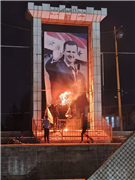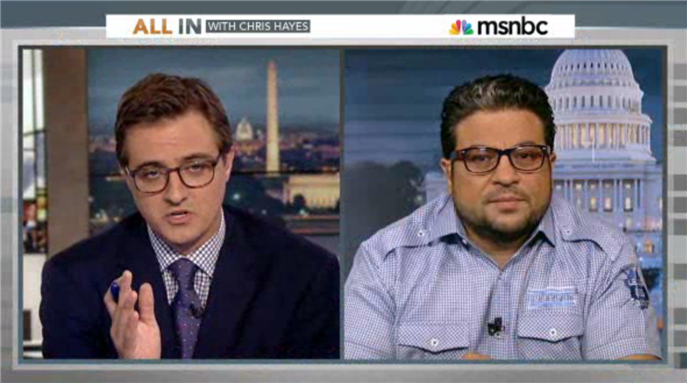In this interview (video below), I discuss with Hossam El-Hamalawy al-Sisi`s government response to the Israeli assault on Gaza as a function of local Egyptian politics and the bold shift in the discourse on Palestine, Hamas specifically. He starts by addressing how al-Sisi continues to play the role that former President Mubarak did on Palestine, except “on steroids.” Whatever little Mubarak did to alleviate the suffering of Palestinians, particularly in Gaza, al-Sisi exceeded. Hossam refers to the cynical Gaza border closure by Egypt during the most critical times. Even at the most extenuating and catastrophic times, such as the current assault on Gaza, no considerations or exceptions are made.
Hossam also addresses the widespread and unprecedented demonization of Palestinians, particularly Hamas, in the mostly government-controlled or pro-Sisi media. But he reminds listeners that this despite this, support for the Palestinian cause is still widespread in Egypt, of which the Egyptian government is aware. This coincides with the derailment of the revolution in Egypt and the ascendance of military fascism and the activation of what some call “electronic committees” that disseminate government propaganda and spam through social media.
In response to the question of calling Hamas a terrorist organization, Hossam asserts that this has always been the case in relation to Palestinian resistance, and goes back to the launching of the militant revolution among Palestinian factions in 1965. It continued and persists through the reign of all presidents in Egypt, but has reached new heights under Sisi. He expands on this, and specifies both media outlets and personalities in the interview.
Hossam concludes with some prognosis about where this demonization might be going in light of the gradual and sometimes fast decline of the euphoria, or hysteria, that surrounded the coming of Sisi to power. He also addresses local factors in Egypt that have precipitated this decline and its attendant disappointment on the Egyptian street, especially in relation to economic issues.
Nevertheless, Hossam calls for caution in terms of expecting too much too soon in relation to social mobilization against al-Sisi, and cites some factors that will spur movement in this regard. He states that the steadfastness of Palestinians in the face of Zionist policies inspires Egyptians in their resistance to status quo in Egypt.
![[screenshot from video below.]](https://kms.jadaliyya.com/Images/357x383xo/Screenshot2014-07-1710.59.26.png)

















